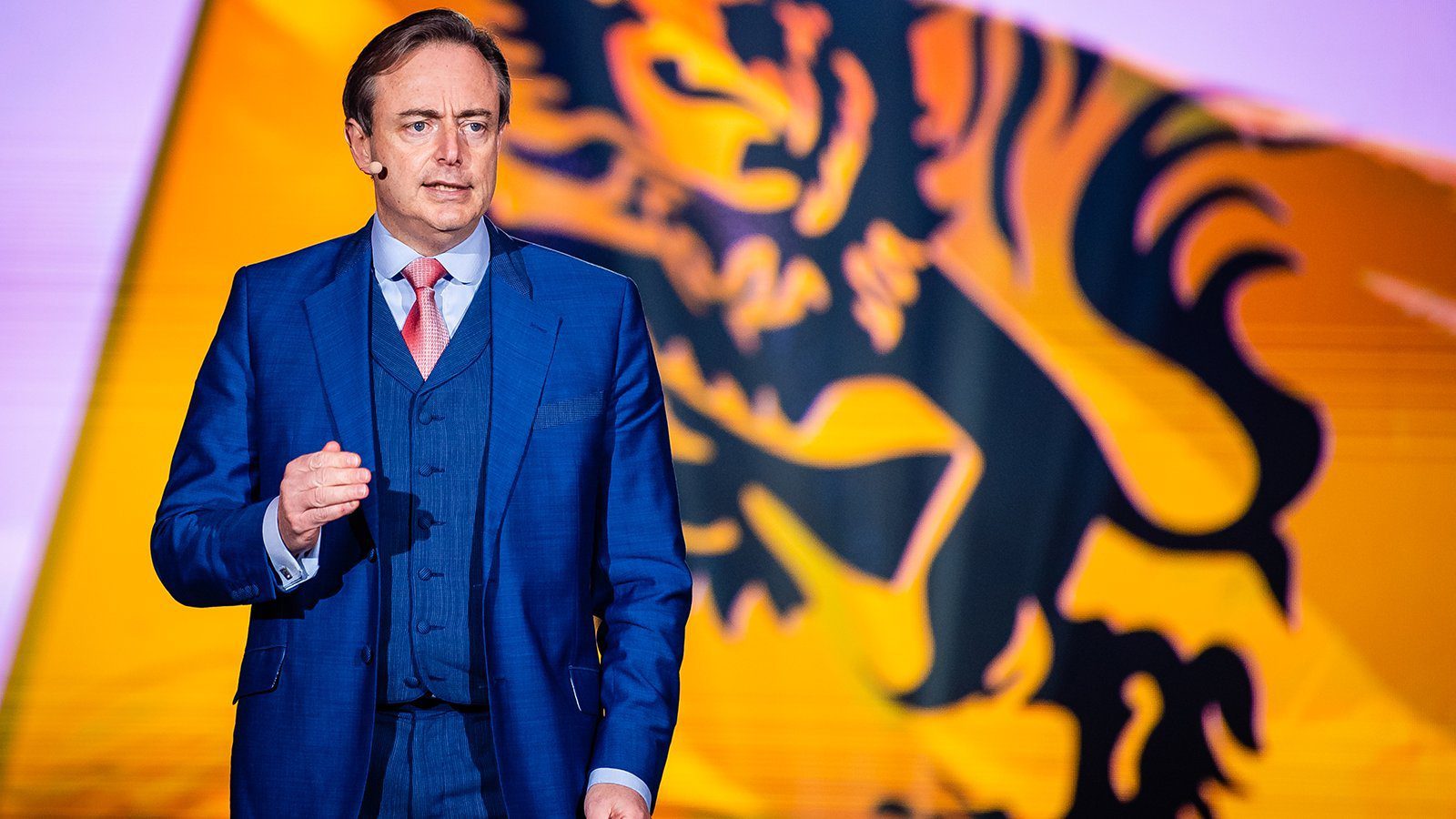
Flemish center-right party N-VA will not be participating in the formation of the Belgian government in 2024 if it does not pursue a confederalist model. The party’s chairman, Bart De Wever, issued the warning on Saturday, November 26th during a Radio 1 interview. N-VA is the largest opposition party within the federal parliament.
According to De Wever, who apart from heading N-VA is also mayor of Antwerp, federalism is no longer fit for purpose, as it cannot solve Belgium’s mammoth budget deficit. Recent calculations have shown that next year, the overall deficit will amount not to the 5.8% (€33,3 billion) of the country’s GDP that was communicated earlier by Prime Minister Alexander de Croo in his State of the Union, but 6.1% (€35 billion).
This means that the structural deficit of the federal government is estimated to be 3.4% of GDP next year, instead of 2.9%. Under the EU’s 1992 foundation treaty (known as the Maastricht Treaty), EU member states cannot exceed the 3% deficit standard, or do so only incidentally, if they wish to avoid a fine. Presently, budget-wise, Belgium performs the worst out of all European states.
De Wever witnesses the trend with alarm, especially since his country “has the highest labor tax in the world already.” For the government to go looking for even more revenue, then, “strikes me as impossible,” he added.
Anticipating the coming storm if no cuts are made, De Wever is convinced that the time has come to tell ourselves some hard truths and that the country’s generous social security system needs reassessing. To address imbalances, people will have to work longer to receive their pensions (or, as De Wever put it, “the pension bomb will have to be defused”) while certain benefits need to be phased out.
The chairman also wants to review what exactly covers “urgent medical aid,” which currently is being granted to new arrivals for free. He went on to criticize the fact that only in Belgium it is possible to be unemployed forever, another taboo that needs to be done away with. “A major clean-up job needs to happen,” he emphasized.
Either “we keep all the excesses out of our social security system” to keep it “social” and “secure,” he said, “or pensions will erode in terms of purchasing power by a factor of three”—as he reiterated that more people need to work. “If one wants to work like a southern Italian in French-speaking Belgium, one must also live like a southern Italian. If one wants to live like a Scandinavian, then one must work like a Scandinavian.”
“The ship is sinking while we are on it,” De Wever stressed. It is a state of affairs that, according to the N-VA chairman, cannot be solved within the federalist state structure as Belgium knows it today.
“People have to realize how bad the situation is and that the PS (Parti Socialiste, a Walloon party) is deliberately organizing this,” De Wever warned. According to him, PS chairman Paul Magnette confessed to him in 2020 that the socialists love a crisis (‘les socialistes aiment la crise‘) because it allows them to spend money.
In this case, it is largely Flemish money at stake since it is the most productive region of the two. Quoting former British Prime Minister Margaret Thatcher, De Wever laconically noted that “the problem with socialism is that you eventually run out of other people’s money.”
Given that De Wever will not allow Flanders to impoverish itself over the continued propping up of Wallonia, he “only wants to talk to the PS about one thing,” which is confederalism; through this, more authority—and responsibility—will flow to the separate regions. It is “confederalism, or nothing,” he promised, noting that “otherwise, by 2029 our prosperity will have vanished.”
He promised that he would not “succeed [prime minister] De Croo to follow the PS’ dictates and push Flanders over a cliff.” That by doing this, De Wever might block negotiations (since the PS is an important interlocutor in the formation of a government) is a risk he is willing to take. “We have to confront this matter, which means taking risks, but that is the only way to save ourselves,” he said.
Again taking inspiration from a popular conservative leader, he quoted former U.S. president Ronald Reagan by saying it was “a time for choosing.”
On Sunday, November 27th, during the television programmeDe Zevende Dag, MR ( the center-right ‘Mouvement Réformateur’) Chairman Georges-Louis Bouchez cast doubt on the practicality of Bart de Wever’s plans.
“Politics is math, he said, “and today hardly anyone in Belgian politics can be found defending confederalism, even in Flanders.” He added that “even in Flanders’ case, confederalism makes no sense, since the challenges are currently at the European level.”
